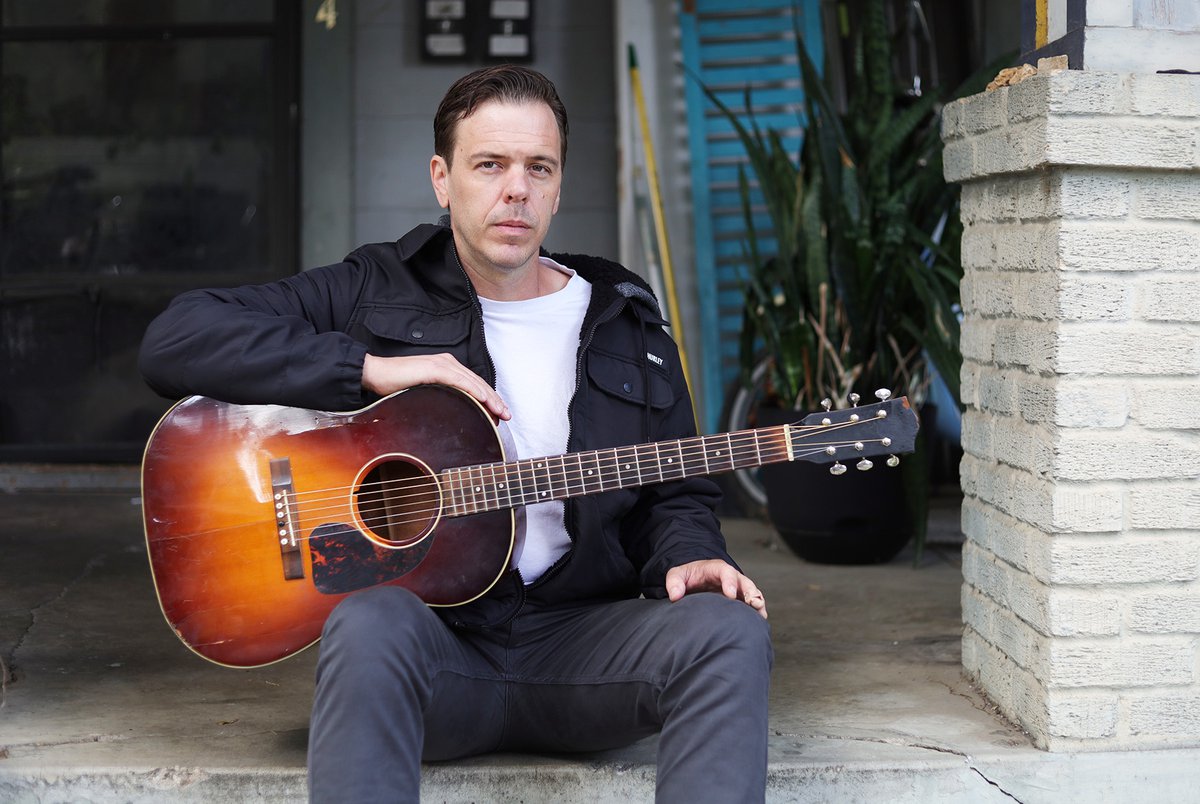Last year, I wandered into the historic Southside Preservation Hall for the inaugural Fort Worth Songwriter Festival and stumbled into something electric: local singer-songwriters converging for one sole purpose — to create, to share, to connect. Among them was Denver Williams, a Fort Worth fixture whose career reads like a love letter to the city’s music scene. From Chillamundo, Chingalotus, Dope Hammer, Deep Sleepers, Denver Williams & The Gas Money, Ghost Roper, and as former lead guitarist for Vincent Neil Emerson — he’s been everywhere. And yet, there’s an intimacy to his playing and singing that stops you in your tracks.
Reflecting on that first festival, Williams remembers the sense of community that drew him in. “I just wanted to make music and soak it all in,” he recalls. “It wasn’t just about performing — there were opportunities to learn, to talk with people, to connect. I found myself not wanting to leave.”
Fast forward a year, and the Fort Worth Songwriter Festival returns, taking over Southside Preservation Hall and Rose Chapel from Nov. 6 through 9, with afterparties spilling into the city’s live-music venues. Williams, fresh off his single “Cannonball” and with his album Let It Ride set for release — including a vinyl release party on Thursday, Dec. 18 at Silver Wheel Skating Rink — seems to be in a rare, sweet spot: spiritually, creatively, and health-wise. Six months sober, he’s fully embracing the music he’s always wanted to make.
Yet his path has been anything but linear. Bands, side projects, solo work, life’s challenges — Williams has navigated it all. But through it, one thing remains consistent: honesty.
When I asked him what lessons the music life has taught him, he paused, then leaned in. “I’m trying to find some honest answers,” he says. “I mean, I’ve learned that external validation is really nothing. It’s air thin. And I bet I’ll relearn that lesson even deeper because I’ve learned that lesson over and over and over.”
Even with multiple “best musician” nods and a reputation as a reliable elder statesman of the Fort Worth music scene, Williams remains grounded.
“I do it because I make art, because I feel like it’s a form of expression,” he explains. “Even after I’ve expressed that for myself, I then want to bring it to the world. The goal is for more people to hear it and to get feedback and connection.”
The journey hasn’t been without hurdles. When asked about his decision to stop drinking, Williams reflected on the factors that shaped that choice.
“There are many reasons that have been present in my life for decades to stop — everything from health, finances, spirituality, relationships that either stunted or fully stopped growth,” he says. “Every time alcohol has led me into pain and struggle… if there were no consequences, I’d probably still be doing it. But there are consequences for me. And they abound.”
That same perseverance has allowed Williams’ career to evolve continually. From his early teenage days with big dreams to now running a home studio he calls the Slab Factory, music creation remains central to his life. Reflecting on his role in the Fort Worth scene, he acknowledges the sacrifices and leaps of faith he’s made — from quitting a 40-hour job in 2008 to putting himself entirely into every song.
“I make the art because I want it to be — and I’ve learned that every time an external source validates what I’ve done in a certain way that I was striving for, I’m like, ‘What’s next?’ The process of creating is the goal, not the accolades,” he says.
Williams’ work is also a universe unto itself: recurring characters, Easter eggs, and visual motifs threading through music videos and live performances. His single “Cannonball,” recorded with live vocals and full-band arrangements at Studio 551, continues that narrative.
“The astronaut… remains,” he says. “I made a film, ‘Hood Cream and the Astronaut Who Escaped My Head,’ part documentary, part fiction, about an astronaut trapped in my head. It documented a record I made called Hood Cream, which captured me moving from the east side of Fort Worth to a one-bedroom apartment I shared with Vincent Neil Emerson here in the Fairmont neighborhood. That’s where the astronaut comes from.”
Above all, Williams is committed to growth — as an artist and as a human being.
“I feel like I’m just getting closer and closer to being true to myself. And I’m not saying I’m totally there. So maybe I’ve also learned that I am a process, and being human is a process, and there’s no final. And it’s okay to make mistakes and review them and to love and be loved,” he says.
Whether on stage, in a festival hall, or in the quiet of his studio, Williams embodies a music life lived honestly — a life measured not in accolades, but in creation, reflection, and connection.

